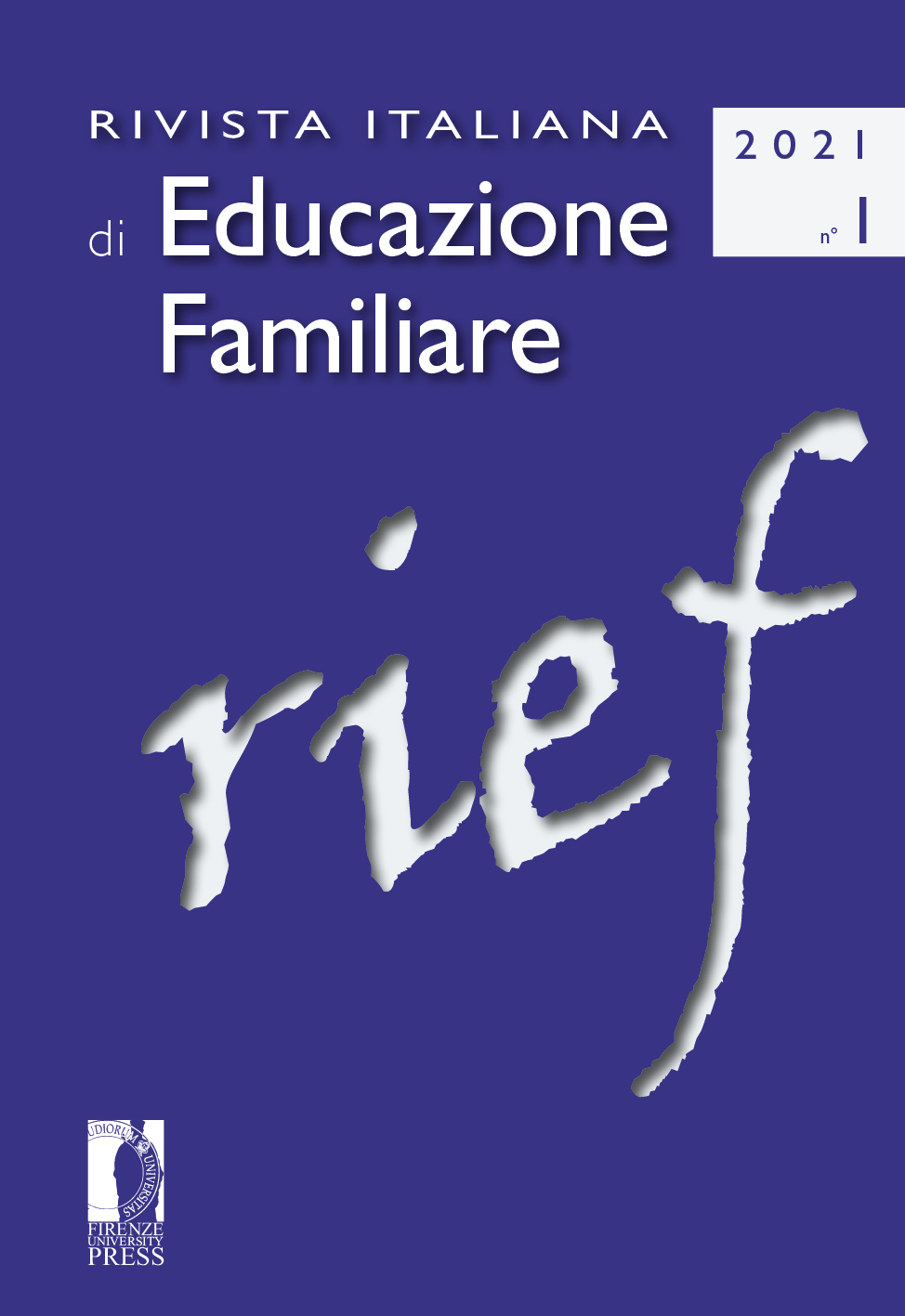Published 2021-06-19
Keywords
- unhappy childhoods,
- transmission of educational “scripts”,
- pact of family loyalty,
- narrative-autobiographical approach,
- autonomy
How to Cite
Abstract
The educational styles, adopted in the family during childhood, impart a tendency to the development of the personality structure of children. The construction of their socio-relational dimension is invalidated even when the parenting couple is unable to disambiguate the “conflicts of reality” by alleviating the polarized tension between love and hate, identity, and belonging, collaboration and competition, legitimacy and illegitimacy, hence mitigating the rigidity of their way of perceiving and relating to others, in different social contexts. It is therefore possible to convey in the family misleading narratives the sense of reality, in a certain sense “mythological”, as those of the ‘Ndranghetist fathers, who push their children to gather in the criminal “paranze” (Saviano, 2016), which become the negative heritage of future generations, forcing who listen to them to believe the world a hostile place. So, how, and in which educational agencies, is it possible to demystify them, without setting in motion in their children that “conflict of loyalty”, which seems to betray their father and themselves? The paper, through a useful criterion both for education and care operators, and for school ones, attempts to answer these questions.


